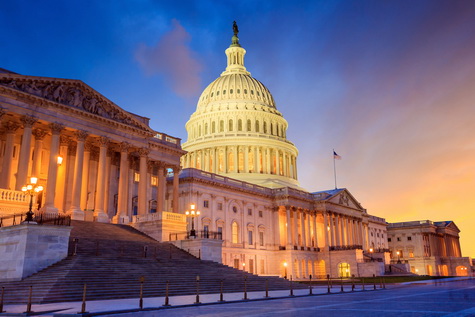
Congressional Committee leaders are gearing up energy and climate proposals as the Biden Administration assembles its plan for an infrastructure initiative to bolster the recovery of the pandemic-damaged economy.
What’s at Stake:
- The White House is considering including clean energy tax credits in a coronavirus recovery proposal, White House national climate adviser Gina McCarthy said. “You can bet tax credits are a large part of that discussion.” (BGov, March 11.)
- The scale and scope of energy and climate measures may make it difficult to attract Republican votes in the wake of the nearly $2 trillion pandemic aid package last week that received no GOP support.
- Top Democratic tax writers may differ on their approach to clean energy tax incentives that aim to achieve low-and zero-carbon energy targets. (CQ, March 15)
- Senate Finance Committee Chairman Ron Wyden’s (D-OR) is seeking to consolidate existing tax incentives. In 2019, he proposed replacing 44 energy-related tax provisions with three credits: one for clean electricity, one for clean fuels, and one to promote greater energy efficiency.
- House Ways and Means Committee Chairman Richard Neal (D-MA) is a leading cosponsor of House Democrats’ GREEN Act, which would expand and enhance existing tax benefits for clean energy and energy efficiency.
- Senate Finance Committee Chairman Ron Wyden’s (D-OR) is seeking to consolidate existing tax incentives. In 2019, he proposed replacing 44 energy-related tax provisions with three credits: one for clean electricity, one for clean fuels, and one to promote greater energy efficiency.
- The Roundtable is currently working with Democratic and Republican Members of the Ways and Means Committee to update and reintroduce a bipartisan proposal, the E-QUIP Act, to encourage energy efficient retrofits of existing commercial and residential rental buildings. (Roundtable Weekly, Dec. 11, 2020).
- A House Energy and Commerce (E&C) hearing on March 18 focused on the Climate Leadership and Environmental Action for our Nation’s (CLEAN) Future Act (H.R. 1512). The CLEAN Act includes provisions affecting building energy codes, energy benchmarking, and Securities and Exchange Commission (SEC) public company reporting on climate risk. The bill is not expected to advance far in the Senate. (Roundtable Weekly, March 5).
Regulation and Federal Funding:
- A Climate Change Disclosures Request for Information issued by the Securities and Exchange Commission (SEC) on March 15 addresses a broad range of issues and legal considerations relevant to possible mandatory SEC requirements. The RFI has a 90-day comment window.
- Acting SEC Chair Allison Lee addressed the RFI this week, stating the agency will commence a number of new initiatives to address “… the risks and opportunities that climate and ESG [Environmental, Social, and Corporate Governance] pose for investors, our financial system, and our economy.”
- A March 17 letter led by Sen. Jeanne Shaheen (D-NH) urges President Biden to include robust federal funding for programs that promote energy efficiency as part of the administration’s upcoming budget proposal for fiscal year 2022. Sen. Lisa Murkowski (R-AK), a member of the Senate Energy and Natural Resources Committee, is also a signatory on the letter.
- The letter states, “Increasing investment in energy efficiency programs within the Office of Energy Efficiency and Renewable Energy (EERE) at the U.S. Department of Energy (DOE) can deliver significant emissions reductions, grow jobs in the clean energy sector and provide savings to American consumers.” The letter also notes that the pandemic and associated economic impacts have hit the energy efficiency sector especially hard, slowing progress and costing jobs, particularly for workers of color.
- Energy efficiency employment in the United States grew by 20% – nearly three times the rate of growth in the overall economy – in the five years leading up to 2020, and energy efficiency jobs are available in nearly every county in every state, according to the National Association of State Energy Officials.
The Real Estate Roundtable’s Sustainability Policy Advisory Committee (SPAC) continues to work with congressional policymakers, EPA and DOE on energy and climate issues of importance to commercial real estate.
# # #


